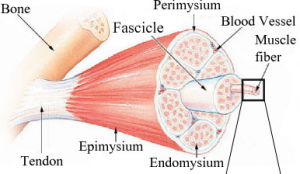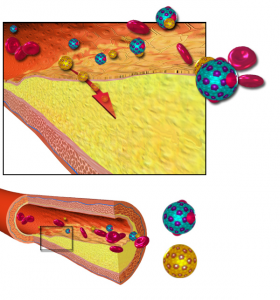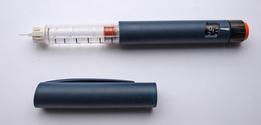If you are going to be consuming spirulina a necessary question you should ask is, how much spirulina should I take per day? To answer this question you first need to know what you are taking spirulina for. The recommended spirulina dosage per day varies depending on your goal, whether it be to help with muscle performance, cholesterol, blood glucose control, blood pressure etc. This is because the amount of nutrients that have an effect on these different aspects vary, therefor the doses vary.
There is still more research that needs to be done in these areas. But with the information available the recommended doses are as follows.
But before we get into that. Lets go over some basic guidelines for dosing. First off, spirulina is approx. 20% C-phycocyanin (pigment-protein complex) and about 1% phycocyanobilin (light-capturing bilane) by weight.
Why is this important?
Because both of these compounds have known dosage limits and they can be used to appropriately dose spirulina. It is recommended that you don’t consume more than
- 10.9g for a 150lb person
- 14.5g for a 200lb person
- & 18.2g for a 250lb person
- The good part is that in order for you to see benefits of muscle performance, cholesterol, blood glucose, blood pressure, etc. you won’t even come close to reaching the recommended limits.
Lets start by looking at the recommended doses individually.
Looking to build muscle? For muscle performance

there have been doses anywhere from 2-7.5 grams used and have shown benefit. But you can take more as desire for more protein.
Spirulina consumption has shown to increase muscle protein synthesis as well as muscle time to exhaustion.
One study, conducted on healthy adults, found that spirulina supplementation of 7.5g/day increased the muscle’s time to exhaustion while running. After 3 weeks of supplementation test subject’s time to exhaustion increased by 53 seconds, while a placebo group increased by only 23 seconds [4].
Another study showed spirulina’s protein increases protein synthesis more than other protein supplements. In the study the pups (dogs) were fed a 17% spirulina diet vs a 17% casein protein diet over a course of 60 days (only source of protein) and the result was that the sprirulina test subjects showed more overall protein synthesis. They had a significant 44% higher Myosin (contractile protein) content than the casein group [1]! And the casein even contains more protein than spirulina (84% to 64% respectively)
Do you have high cholesterol and are looking to better your cholesterol levels? 
Then for you it is suggested that you take anywhere from 1-8 grams per day.
A study conducted on healthy individuals showed that spirulina is a good control of cholesterol. In it subjects were fed extremely fatty meals in which they showed high increases in triglycerides. These increases were lowered when they also ingested 5g of spirulina with the meal [2].
- -for reasons unknown the effect was greater for younger people
Another study (conducted on rats) spirulina showed a significant decrease in LDL cholesterol (bad) and increase in HDL cholesterol (good!). The rats test subjects supplemented .33g spirulina/kg BW for 30 days and showed a LDL cholesterol decrease of 79% and a HDL cholesterol increase of 55%! With an overall cholesterol decrease of 33% [3].
These rat test subjects did have metabolic syndrome. So they had bad cholesterol levels to start, including low HDL cholesterol and high triglyceride levels.
Are you at risk of diabetes and need to control your blood glucose level?
Doses as low as 2g/day have shown small effects.
Studies of this matter have shown spirulina’s ablility to reduce blood glucose levels by up to 60%. One of which in which rats consumed 0.33g of spirulina/day reduced their blood glucose by 54-60%. This is more effective than Metformin at 500mg/kg, which showed only a 46% decrease [5]. These rats were fed high fructose diets prior and during supplementation, so their blood glucose levels were high.
Other studies done on healthy rats (87.56 to 74.80 mg/dL) showed blood glucose decreases of up to 14.6% [6].
Worried about blood pressure? Spirulina can help

It is suggested that 3.5-4.5 grams of spirulina per day are enough to have a positive effect.
One study with human test subjects showed a decrease in blood pressure after 6 weeks of supplementing 4.5g/day. Measurements of the results were not given [7].
Others have shown that spirulina supplementation leads to increased nitric oxide production, which dilates blood vessels and increases blood flow [8].
Spirulina’s effect on blood pressure is one area that needs much more research.
What is your goal with taking spirulina? It has so many benefits I cannot write about every single one. Leave a comment below and I will help you out 🙂
Sources
- 1) Voltarelli FA, de Mello MA Spirulina enhanced the skeletal muscle protein in growing rats. Eur J Nutr. (2008)
2) Torres-Durán PV, et al Effect of Spirulina maxima on postprandial lipemia in young runners: a preliminary report . J Med Food. (2012)
3) Jarouliya U, et al Alleviation of metabolic abnormalities induced by excessive fructose administration in Wistar rats by Spirulina maxima . Indian J Med Res. (2012)
4) Lu HK, et al Preventive effects of Spirulina platensis on skeletal muscle damage under exercise-induced oxidative stress . Eur J Appl Physiol. (2006)
5) Jarouliya U, et al Alleviation of metabolic abnormalities induced by excessive fructose administration in Wistar rats by Spirulina maxima . Indian J Med Res. (2012)
6) Ou Y, et al Preventive effect of phycocyanin from Spirulina platensis on alloxan-injured mice . Environ Toxicol Pharmacol. (2012)
